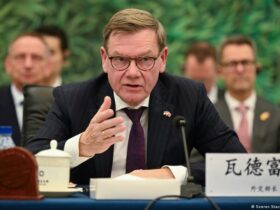The sports company Puma wants to reach younger generations in particular with the “Green Flags” podcast series. In the five-part series, which aims to shed light on various facets of the topic of sustainability, Manchester United captain and England international Maya Le Tissier, professional footballer Moses Duckrell and fashion and lifestyle guru Oli Bromfield talk about the possibilities and necessary changes for a greener future. Every week the trio is given a playful task that is intended to inspire and inform listeners. These “challenges” are designed to show how “even small changes can make a big difference in reducing our environmental footprint,” according to the company.
“I’m really excited to be part of this podcast that brings sustainability to Gen-Z listeners,” says England international and presenter Maya Le Tissier. “It’s a lot of fun solving the sustainability challenges and learning about the small changes we can all make to combat climate change.”
Top marks for material strategy
At the same time, Puma is pleased to receive an award from the global non-profit organization Textile Exchange. This awarded the company the top rating of “Leading” for its “holistic materials strategy geared towards global goals” and its transparent approach to the issue of climate and circular economy.
“We know how important our choice of product materials is if we want to reduce our carbon footprint and environmental impact,” says Anne Laure Descours, Chief Sourcing Officer at Puma. “We are delighted to be ranked as a ‘Leader’ in this year’s index and we will use this as an opportunity to further strengthen our materials strategy.”
By 2025, Puma’s goal is to make nine out of 10 products from materials rated preferred by Textile Exchange or from certified sources. Last year, this was already the case for eight out of ten products. Additionally, in 2023, around 99.7% of leather came from tanneries certified by the Leather Woring Group and 99.2% of cotton was certified or recycled. Around 65% of the polyester used for textiles and accessories came from recycled materials.






Leave a Reply